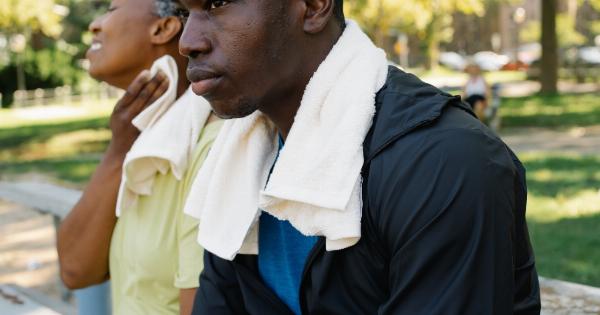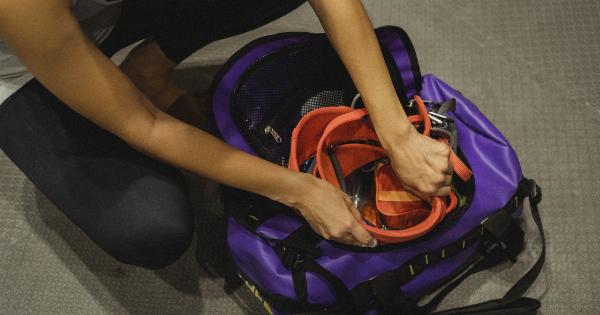Summer vacation is a time when kids get a break from their school routines and indulge in various fun activities. While summer is a time for relaxation and enjoyment, it is essential to ensure that children’s health is not compromised.
The warm weather and outdoor activities during summer can expose kids to several health concerns that parents need to be aware of. This article aims to highlight the health concerns that kids may face during the summer vacation period and provide essential tips to keep them safe and healthy.
Sunburn
One of the most common health concerns during summer vacation is sunburn. When kids spend prolonged hours outdoors without proper sun protection, they are at risk of getting sunburned.
Sunburn occurs when the skin is exposed to the harmful ultraviolet (UV) rays of the sun, leading to redness, pain, and blistering.
To prevent sunburn, ensure that your kids apply a broad-spectrum sunscreen with a high SPF before going outdoors, even on cloudy days. Encourage them to wear protective clothing like wide-brimmed hats, sunglasses, and lightweight, long-sleeved shirts.
Limit their time in the sun during peak hours, usually between 10 am and 4 pm.
Dehydration
With the scorching heat of summer, kids are at a higher risk of dehydration. Dehydration occurs when the body loses more fluids than it takes in. Sweating, increased physical activity, and inadequate intake of fluids can contribute to dehydration.
To prevent dehydration, ensure that your kids drink plenty of water throughout the day. Encourage them to carry a water bottle with them and to drink even when they are not feeling thirsty.
Avoid sugary drinks or sodas as they can further dehydrate the body. Offer them fresh fruits and vegetables with high water content, such as watermelon and cucumbers.
Heat Exhaustion
Heat exhaustion is another health concern for kids during summer vacation. It is a condition that occurs when the body overheats due to prolonged exposure to high temperatures.
Symptoms of heat exhaustion include dizziness, fatigue, headaches, nausea, and vomiting.
To prevent heat exhaustion, encourage your kids to stay in shaded areas whenever possible. Limit vigorous physical activities during the hottest hours of the day and take frequent breaks in cooler areas.
Ensure that they drink enough fluids, preferably water, to stay hydrated. If your child shows symptoms of heat exhaustion, bring them indoors, provide cool fluids, and seek medical attention if necessary.
Swimming-Related Injuries
Swimming is a popular activity during summer vacation, but it also poses certain health concerns. Drowning and other swimming-related injuries are significant risks that parents need to be mindful of.
To prevent swimming-related injuries, always supervise your children while they are in or near water. Enroll them in swimming lessons to ensure they have adequate water safety skills.
Teach them about the importance of not running near the pool and diving in designated areas. Install proper barriers such as fences and pool covers to prevent unsupervised access to pools.
Allergies
Summer is a time when various allergens like pollen, grass, and insects are prevalent. Allergies can cause discomfort and other health issues in kids.
To combat allergies, encourage your children to wash their hands frequently, especially after playing outdoors. Keep windows closed to prevent pollen from entering the house.
If your child has known allergies, consult with a doctor for appropriate medication or preventive measures.
Food Safety
The warm weather of summer can increase the risk of food spoilage and foodborne illnesses. Picnics and outdoor barbecues are common activities during this time, but it is essential to handle food safely.
To ensure food safety, always wash hands before preparing or eating food. Keep perishable foods refrigerated until ready to be consumed. Use separate cutting boards and utensils for raw and cooked foods to avoid cross-contamination.
Implement proper grilling practices and cook meats thoroughly to prevent foodborne illnesses.
Insect Bites and Stings
During summer, kids are more likely to encounter insects like mosquitoes, bees, wasps, and ticks. Bites and stings from these insects can cause itching, redness, swelling, and allergic reactions.
To protect your children from insect bites and stings, apply insect repellent before heading outdoors. Dress them in light-colored, long-sleeved clothing to minimize exposed skin. Teach them to avoid areas with stagnant water where mosquitoes breed.
In case of a bee or wasp sting, remove the stinger if visible, apply a cold compress, and seek medical attention if necessary.
Eye and Ear Protection
Exposure to excessive sunlight and loud noises can lead to eye and ear problems. These concerns are particularly relevant during summer vacations when kids engage in outdoor activities and attend events like fireworks.
To protect your child’s eyes, ensure they wear sunglasses with proper UV protection. Limit their exposure to loud noises, especially during fireworks displays and concerts, by using earplugs or earmuffs.
Physical Inactivity
While summer vacation is a time for relaxation, it is essential to prevent excessive physical inactivity, which can lead to health issues in children, including weight gain, muscle weakness, and reduced cardiovascular fitness.
To keep your kids physically active during summer, encourage them to participate in outdoor games, swimming, cycling, or simply going for walks. Organize family activities or enroll them in summer camps that offer various physical activities.
Limit their screen time and encourage them to engage in creative play or hobbies that involve movement.
Travel Safety
Summer vacations often involve travel and exploration of new places. However, it is essential to prioritize travel safety for kids.
Ensure that your child is properly restrained in a car seat or seat belt while traveling. Teach them about road safety, including looking both ways before crossing the street, using pedestrian crossings, and wearing helmets while bike riding.
Keep a first aid kit handy and be prepared for any unexpected health concerns that may arise while traveling.
Conclusion
Summer vacations are a time for kids to relax and enjoy a break from their regular routines. However, it is crucial for parents to be aware of the potential health concerns that may arise during this period.
By taking necessary precautions and implementing safety measures, parents can ensure that their children have a safe and healthy summer vacation filled with memorable experiences.



























